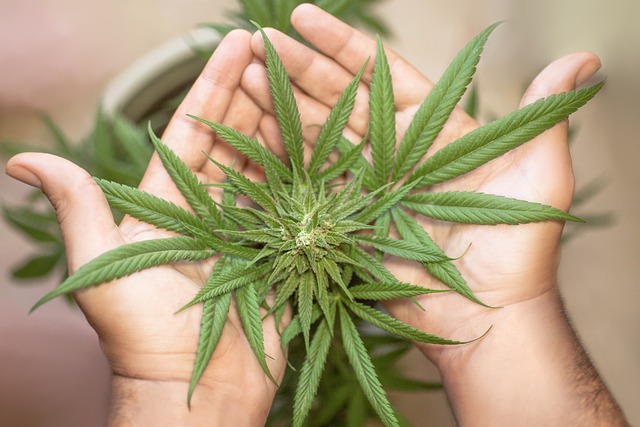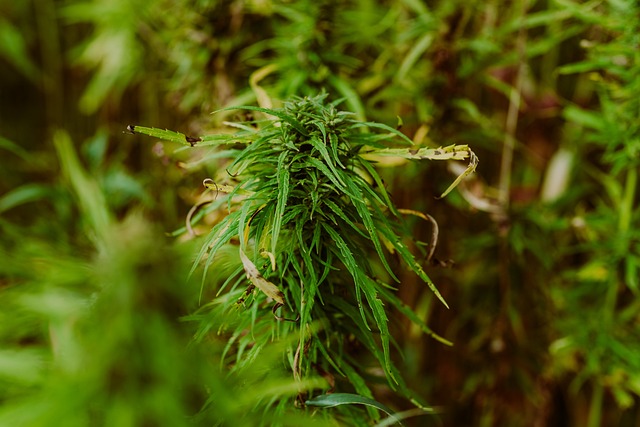THCA flower, the precursor to THC and a non-psychoactive cannabinoid found in raw cannabis, is gaining recognition for its therapeutic benefits. With potent anti-inflammatory properties, THCA is being studied alongside CBD for their combined potential to offer enhanced health advantages through a synergistic effect, which is backed by clinical and experimental research. This THCA flower and CBD synergy could lead to new, effective treatment options for various health issues. Notably, when heated, THC-A converts to THC, providing a means to interact with the endocannabinoid system without intense psychoactive effects. The versatile use of THC-A flower as part of a wellness routine makes it an attractive option for those looking to explore cannabinoids' health benefits, highlighting the importance of continued research into the entourage effect and cannabinoid interactions.
Explore the intricate world of THCA flower and its harmonious partnership with CBD. This article delves into the unique properties of Tetrahydrocannabinolic Acid (THCA) and how it complements cannabidiol (CBD) to enhance their collective therapeutic benefits. From the science behind their interaction to the practical aspects of cultivation, consumption, and storage, we unravel the potential of THCA flower in the context of CBD synergy. Join us on this enlightening journey through the entourage effect, legal considerations, and the role of terpenes, all aimed at providing a comprehensive guide for those interested in harnessing the full spectrum of cannabinoid wellness.
Unlocking the Potential of THCA Flower: A Deep Dive into Cannabinoid Synergy with CBD

THCA flower, or tetrahydrocannabinolic acid, is a non-psychoactive precursor to THC, the primary psychoactive component in cannabis. As interest in cannabinoids and their health benefits continues to grow, researchers and consumers alike are turning their attention to the potential of THCA flower. This cannabinoid presents an intriguing opportunity for those seeking the therapeutic properties associated with cannabis without the psychoactive effects. When heated or decarboxylated, THCA converts to THC, but in its raw form, it offers a unique profile that can complement other cannabinoids like CBD, creating a synergistic effect.
The interaction between THCA flower and CBD is a subject of increasing interest due to the potential for enhanced therapeutic effects. These two cannabinoids work together in a complex interplay that may amplify their individual benefits. For instance, while THCA has its own unique effects, such as anti-inflammatory properties, when combined with CBD, the analgesic and anxiolytic effects can be more pronounced. This synergy is not just theoretical; it’s observed in various clinical and experimental studies that suggest a combined regimen of THCA and CBD may offer broader and more potent health benefits than either compound alone. Understanding this relationship can lead to more effective cannabis-based treatments for a variety of conditions, highlighting the importance of exploring the full spectrum of cannabinoid interactions.

THC-A flour is garnering attention in the cannabinoid community for its unique properties and therapeutic potential. Unlike its psychoactive counterpart, delta-9-tetrahydrocannabinol (THC), tetrahydrocannabinolic acid A (THC-A) is non-psychoactive and presents a different set of effects. The flower, rich in THC-A, offers a distinct experience that complements the entourage effect when combined with other cannabinoids like CBD. This synergy is particularly intriguing for those seeking the beneficial properties of cannabis without the high associated with THC. The THC-A in its raw form has been reported to exhibit pain-relieving and anti-inflammatory effects, making it a subject of interest for research into medical applications. When consumed, THC-A undergoes decarboxylation, converting into THC, which can then interact with the body’s endocannabinoid system, influencing mood, pain perception, and other functions. The presence of CBD in synergy with THC-A is believed to modulate these effects, potentially enhancing the therapeutic benefits while reducing the psychoactive impact if heat is applied during consumption. This makes THC-A flower a versatile and potentially beneficial option for those looking to explore the cannabinoid landscape.
THCA flower and its potential synergistic effects with CBD have emerged as a subject of significant interest within the realm of cannabinoid research. This in-depth exploration has shed light on the therapeutic properties of THCA, highlighting its role as a non-psychoactive compound that may offer health benefits alongside CBD. As the understanding of these compounds continues to evolve, it is clear that both THCA flower and CBD synergy hold promise for various applications. Future studies are warranted to fully realize the breadth of their combined effects, paving the way for innovative therapeutic approaches.
